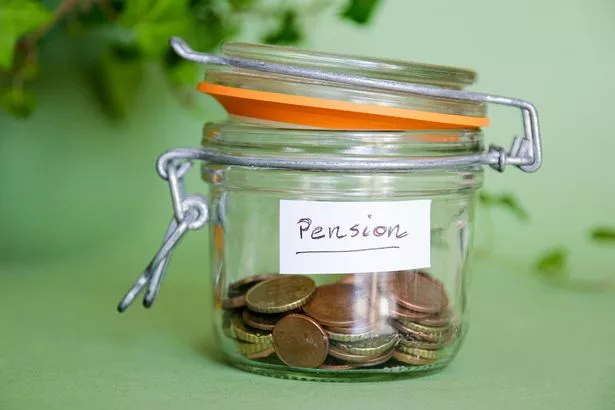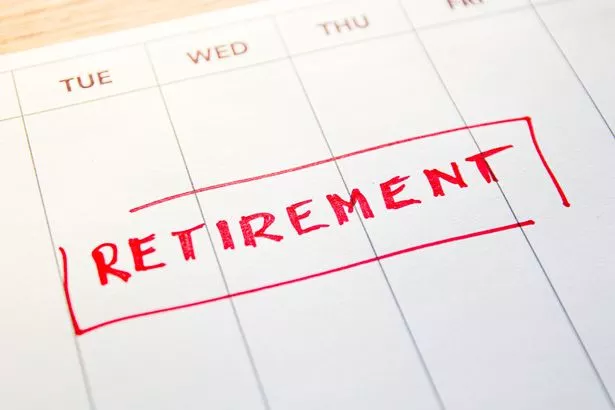An expert has shared his top tips that he believes are crucial for getting ready for retirement. Here they are… An expert has revealed some of the best tips to ensure you are all set to retire when the time comes (Image: GettyImages)
An expert has revealed some of the best tips to ensure you are all set to retire when the time comes (Image: GettyImages)
Retirement can seem like a distant dream, or even like another planet where people spend their days gardening, watching TV or heading on holiday. But life often moves faster than we expect and it’s wise to be financially prepared for when it comes.
Matthew Sheeran, Money Wellness collaboration partner and Trained debt adviser, states: “It’s really important, making sure you’re planning for your 60s and retirement. Life can change so quickly.”
“When you get into your 50s, you are more susceptible to things like illness, injury and needing to take time out of work for partners. So this is really your best opportunity to make sure you’re planning for your future,” he concluded.
Here are the key decisions, Matthew recommends, to make before you reach the big 6-0, which your wallet will thank you for later…
Use a budget planner – if you’re not already
Begin protecting your retirement by managing your everyday spending.
Matthew says: “Get a sense of what you’ve got coming in versus what you’ve got going out.” To do so he recommends using an online budgeting tool or the 50 30, 20 method.
This method is: “spending 50% of your income on needs – rent, food, essential bills; using 30% on wants – going out, seeing friends and family, spending time with your children; and then 20% on savings or debt; clearing off any high-interest debt before it gets too big, and then whatever you’ve got left over, put away for your future.”
Track down old pensions The expert recommends tracking down any old pensions from previous jobs (Image: GettyImages)
The expert recommends tracking down any old pensions from previous jobs (Image: GettyImages)
You might be excited to start using your pension, but have you checked how many pension pots you’ve built up during your working years?
Matthew states: “In your 40s and 50s you have the ability to earn more money, your income can be flexible, but then once you retire, you’ve pretty much got a fixed income, so it’s never too soon to start thinking about pensions.”
“Track down any lost pensions, even if they’ve only got £100 in. That’ll give you a good idea as to: what lifestyle do I want in the future? And how much more do I need to pay now to get to that point?”
Dig out old paperwork to help you keep track of pension pots.
Tackle any debt
“Some people aren’t in a position or don’t have the luxury to save lots of money, but if you do have money left over at the end of each month, tackle your debt,” Matthew says.
“Always start with your high-interest debt: credit cards, overdrafts and personal loans. They can really drain retirement funds because of the interest, especially when you may not have the means to pay them quickly at a later age. Leave low-interest debts until afterwards, that’s while not forgetting to save a little bit for a rainy day at the same time,” he concludes.
Matthew recommends using a free debt advice service (like Money Wellness’ or National Debtline).
Maximise your income These tips will have you set for retirement (Image: GettyImages)
These tips will have you set for retirement (Image: GettyImages)
Next up, look at income you might inadvertently be missing out on. Matthew says: “There’s so many benefits that go unclaimed in the UK, so there might be things you’re entitled to that you’re not claiming.” He recommends visiting turn2us.org.uk to find out what you might be entitled to.
According to Matthew there are “quick wins” to be had too.
“Negotiate better deals with your broadband, your phone, cut TV subscriptions you’re not using, and make sure you’re on a suitable energy tariff. There’s so many tariffs that might reward you for putting your washing on at night on a timer. Little things like that can save you £20, £30, £40 a month, which can go towards that pension or savings pot,” he explains.
Take steps to being financially resilient
“You want to make sure you are as financially resilient as possible. That could start by having emergency funds in a current account or an account you can access easily without penalties. We’d always recommend having anywhere between three to six months’ worth of essential expenses saved,” Matthew explains.
“Anything over and above that, that’s where you’d look at Premium Bonds and/or an ISA.”
Join the Daily Record’s WhatsApp community here and get the latest news sent straight to your messages.

